20 January 2006 – 19 March 2006
Morris and Helen Belkin Art Gallery
Stan Douglas: Inconsolable Memories
-
Stan Douglas
Artist -
Scott Watson
CuratorScott Watson (Canadian, b. 1950) is Director Emeritus and Research Fellow at the Morris and Helen Belkin Art Gallery, University of British Columbia. A curator whose career has spanned more than thirty-five years, Watson is internationally recognized for his research and work in curatorial and exhibition studies, contemporary art and issues, and art theory and criticism. His distinctions include the Hnatyshyn Foundation Award for Curatorial Excellence in Contemporary Art (2010); the Alvin Balkind Award for Creative Curatorship in BC Arts (2008) and the UBC Dorothy Somerset Award for Performance Development in the Visual and Performing Arts (2005). Watson has published extensively in the areas of contemporary Canadian and international art. His 1990 monograph on Jack Shadbolt earned the Hubert Evans Non-Fiction Prize in 1991. Recent publications include Letters: Michael Morris and Concrete Poetry (2015); Thrown: British Columbia’s Apprentices of Bernard Leach and their Contemporaries (2011), a finalist for the 2012 Roderick Haig-Brown Regional Prize; “Race, Wilderness, Territory and the Origins of the Modern Canadian Landscape” and “Disfigured Nature” (in Beyond Wilderness, McGill University Press, 2007); and “Transmission Difficulties: Vancouver Painting in the 1960s” (in Paint, Vancouver Art Gallery, 2006).
Read More
Stan Douglas has an international reputation for his photographs and his film and video installations. Since the late 1980s, he has been a leader in pushing the museum space toward an involvement with the projected moving image and in blurring the boundaries between visual art, cinema and television.
For this exhibition, Douglas is presenting a new film work and a series of photographs inspired by his recent trips to Cuba. The photographs were shot over the last two years and depict the recycled and often dilapidated urban architecture of Havana and its environs. Banks converted into motorcycle lots and villas transformed into schools embody the shifting economies of use under Castro’s Revolution. Douglas’ prints are immaculate and technically flawless, in obvious contrast to the ruin and entropy they portray.
Douglas’ film work Inconsolable Memories is based on the Cuban cinematic masterpiece, Memories of Underdevelopment, directed by Tomas Gutierrez Alea in 1968. Alea’s film portrayed the alienation of Sergio, a bourgeois intellectual caught up in the rapidly changing social reality of Cuba following the disastrous Bay of Pigs invasion and the missile crisis of 1962. Douglas’ film relocates Sergio in 1980, the year of the Mariel boat exodus, when Castro allowed tens of thousands of Cubans to leave the island on a procession of boats arriving from Florida. Past and present overlap in Douglas’ film through his use of two 16mm film loops, unequal in length, but projected simultaneously onto one screen. Shots of both documentary and fictional footage combine and recombine to unravel the experience of film and to confront us with existential questions about time.
The experience of Inconsolable Memories is both poetic and intellectual. Douglas involves us in an absorbing phenomenon, in which the usual signposts are shifted, in which things veer in and out of synchronicity and in which we can safely lose our bearings. Ultimately, Douglas’ works speculate in a new way about how contemporary consciousness is shaped by history and the moving image by burrowing into the technology of film and projection and finding there intimations of our future.
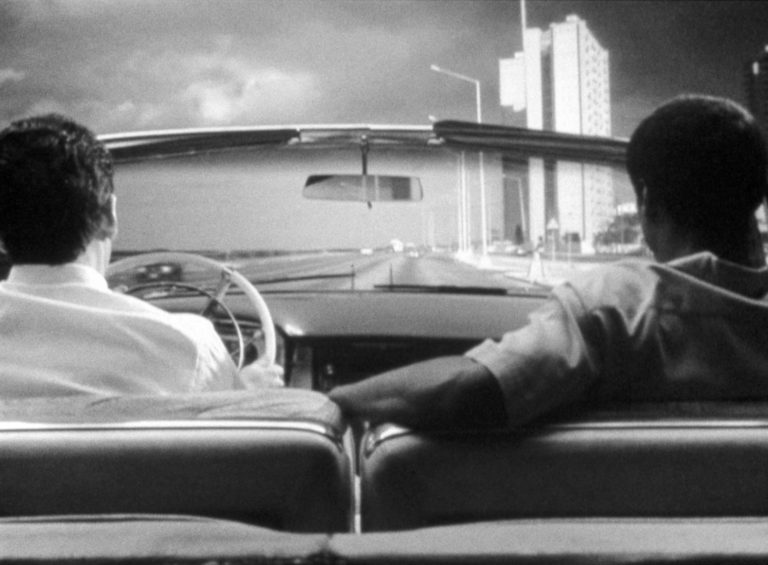
Film still from Inconsolable Memories, 2005.
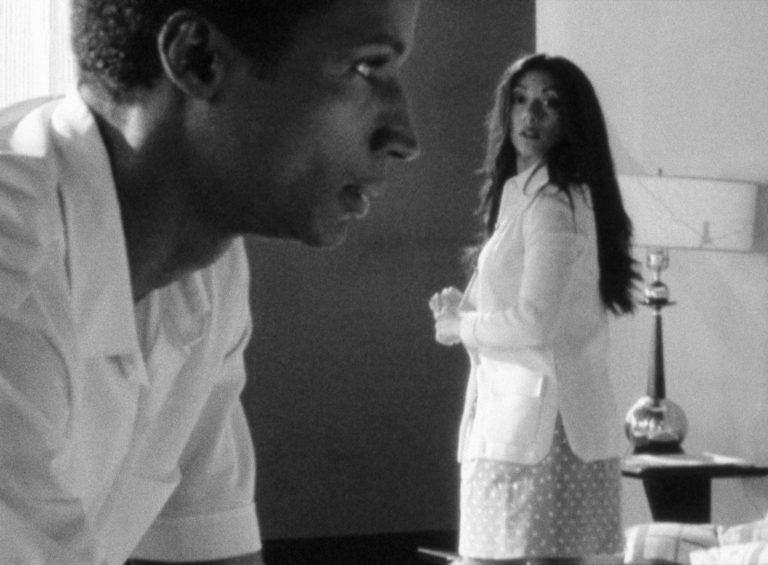
Film still from Inconsolable Memories, 2005.
Panopticon, Isla de Pinos / Isla de la Juventud, 2005. Laser-jet print mounted on 1/4 in. honeycomb aluminum.
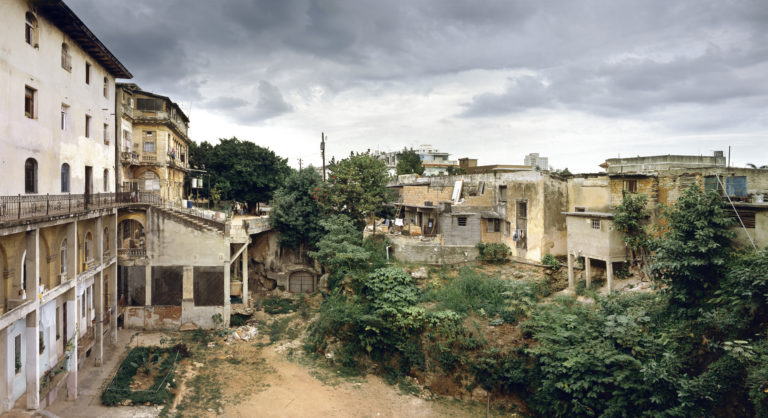
Quarry, Vadado, 2004. Laser-jet print mounted on 1/4 in. honeycomb aluminum.

Stan Douglas: Inconsolable Memories.
Exhibition catalogue.
-
Stan Douglas
Artist -
Scott Watson
CuratorScott Watson (Canadian, b. 1950) is Director Emeritus and Research Fellow at the Morris and Helen Belkin Art Gallery, University of British Columbia. A curator whose career has spanned more than thirty-five years, Watson is internationally recognized for his research and work in curatorial and exhibition studies, contemporary art and issues, and art theory and criticism. His distinctions include the Hnatyshyn Foundation Award for Curatorial Excellence in Contemporary Art (2010); the Alvin Balkind Award for Creative Curatorship in BC Arts (2008) and the UBC Dorothy Somerset Award for Performance Development in the Visual and Performing Arts (2005). Watson has published extensively in the areas of contemporary Canadian and international art. His 1990 monograph on Jack Shadbolt earned the Hubert Evans Non-Fiction Prize in 1991. Recent publications include Letters: Michael Morris and Concrete Poetry (2015); Thrown: British Columbia’s Apprentices of Bernard Leach and their Contemporaries (2011), a finalist for the 2012 Roderick Haig-Brown Regional Prize; “Race, Wilderness, Territory and the Origins of the Modern Canadian Landscape” and “Disfigured Nature” (in Beyond Wilderness, McGill University Press, 2007); and “Transmission Difficulties: Vancouver Painting in the 1960s” (in Paint, Vancouver Art Gallery, 2006).
Read More
Related
-
Publication
2006
Stan Douglas: Inconsolable Memories
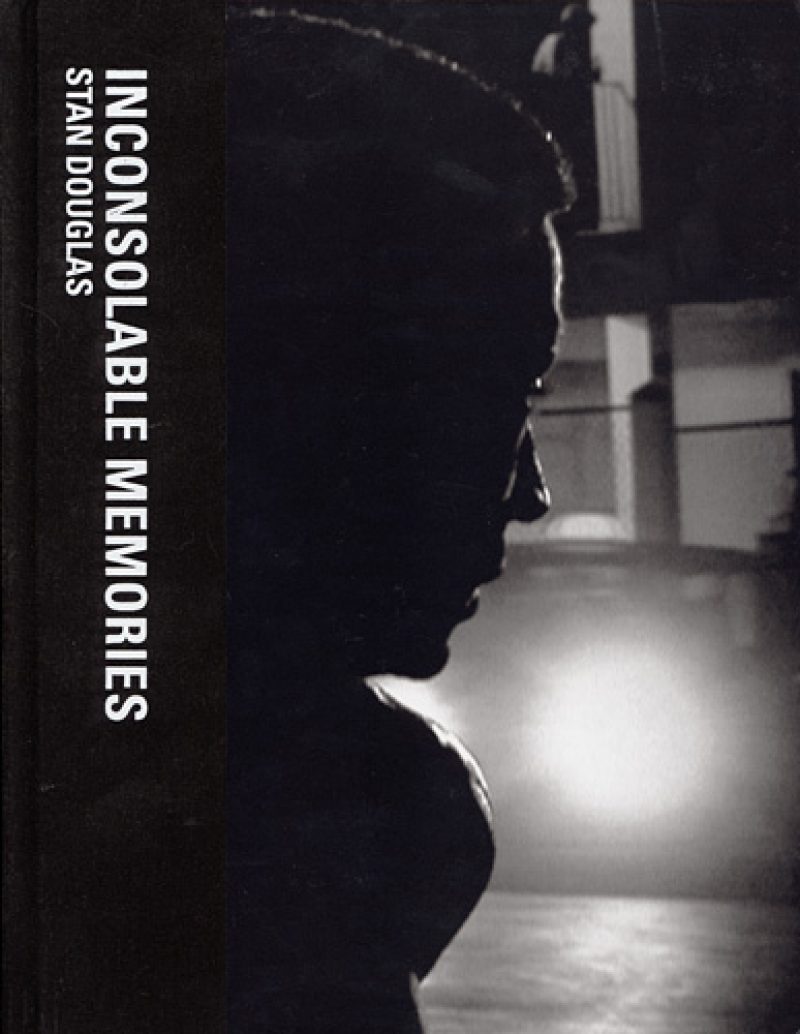 Exhibition catalogue from Stan Douglas: Inconsolable Memories at the Belkin (20 January-19 March 2006) with texts by Sven Lutticken and Philip Monk. The exhibition presents a new film work by Douglas and a series of photographs inspired by his recent trips to Cuba. [more information and purchase]
Exhibition catalogue from Stan Douglas: Inconsolable Memories at the Belkin (20 January-19 March 2006) with texts by Sven Lutticken and Philip Monk. The exhibition presents a new film work by Douglas and a series of photographs inspired by his recent trips to Cuba. [more information and purchase] -
Event
Thursday, 6 Jun 2019, 4:30 pm
Artist Talk: Stan Douglas
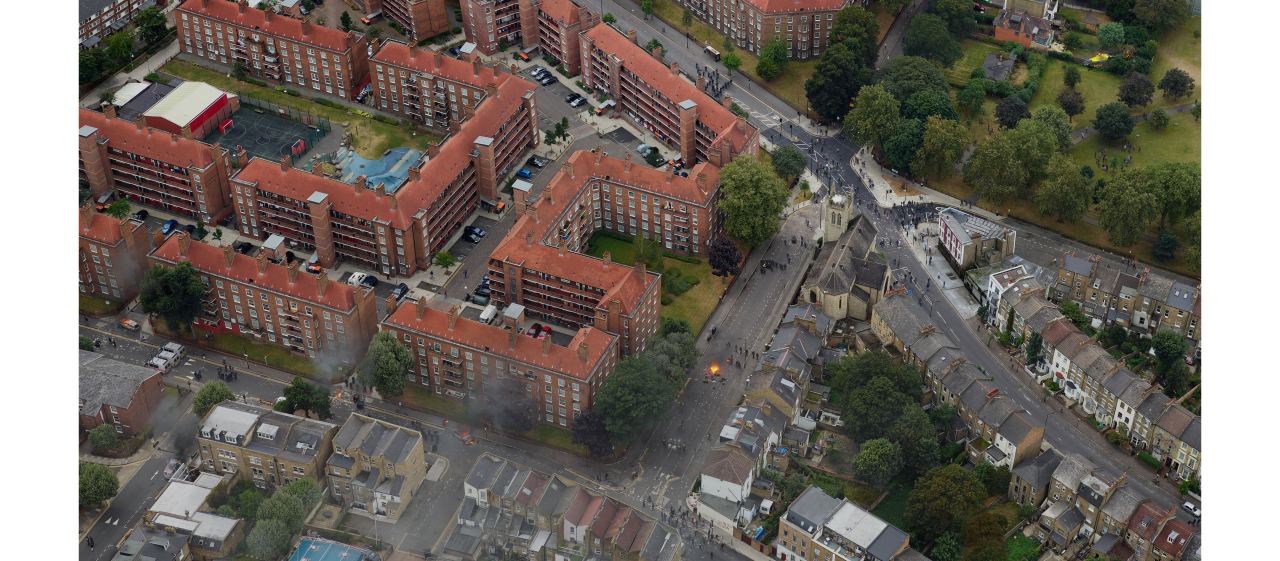
What does it mean to reconstruct moments of historical rupture through a modern lens? Join renowned Vancouver artist Stan Douglas as he explores the boundaries of artistic expression in photographic depictions of the past. This presentation an concersation will examine artistic reconstructions of significant social moments that give a window to not only the past, but our perceptions of it. Internationally acclaimed, Douglas's engaging work explores social histories played out through a complex, cinematic televisual language, presenting works of historical reconstruction and how they abandon 19th century photographic realism to make way for new perspectives of true historical events. This event will be followed by a reception at the Frederic Wood Theatre and is part of Congress 2019 / Circles of Conversation Big Thinking series.
[more] -
News
03 Aug 2021
Celebrating the Belkin’s 25th Anniversary
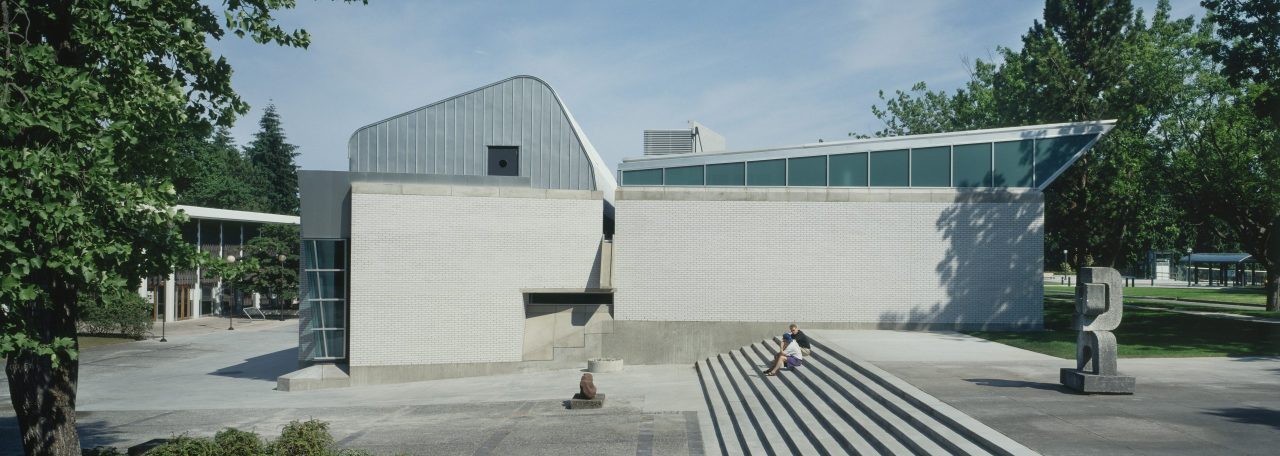 [more]
[more]